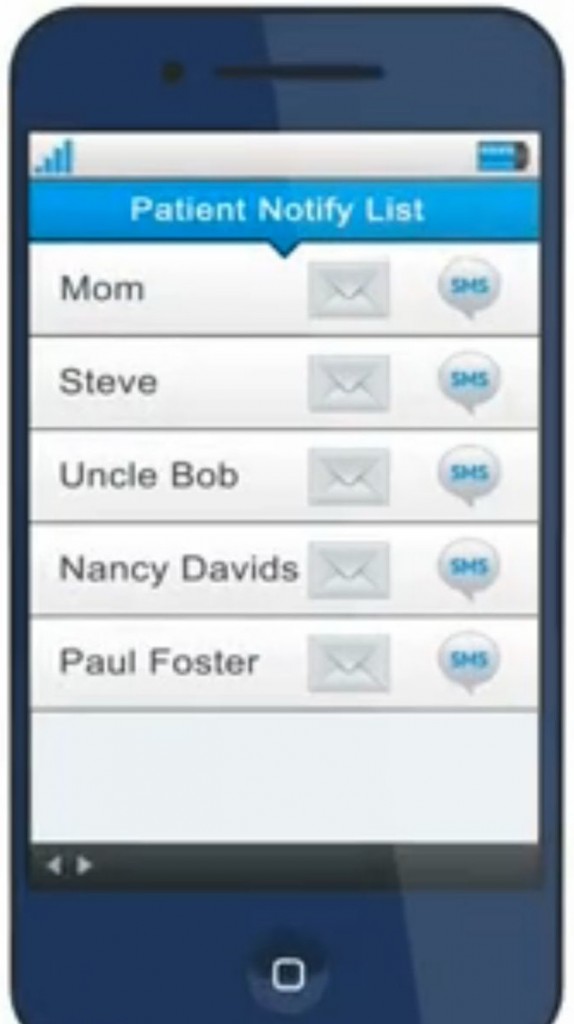 After Hurricane Sandy slammed the Northeast Oct. 29, Mount Sinai Medical Center had to take extra patients evacuated from other New York City hospitals. Busy staff there used an app called MDconnectME to send quick updates to designated family members about the location and condition of their loved ones.
After Hurricane Sandy slammed the Northeast Oct. 29, Mount Sinai Medical Center had to take extra patients evacuated from other New York City hospitals. Busy staff there used an app called MDconnectME to send quick updates to designated family members about the location and condition of their loved ones.
Interestingly, Philadelphia-based MDconnectME did not design its app for disaster response. "What we developed was for surgeons to use from the OR," explains CEO Scott Anzel. But the original idea was to reduce complexity and provide a little peace of mind.
Anzel co-founded the company and developed the Web-based app with Dr. Chad Gordon, a Johns Hopkins plastic surgeon who was a junior member of the team that performed the first full face transplant in the US while he was a fellow at the Cleveland Clinic in 2010.
During the operation, Gordon had to communicate with 70 other team members and with the patient's loved ones, who were scattered across the Midwest. As Anzel tells it, Gordon carried several pagers and a BlackBerry, since the team could only send out pages and wait for calls back, lest they violate HIPAA.
"That was a watershed moment," Anzel says.
MDconnectME lets clinicians send regular updates to a patient-directed list of recipients, usually as one of a predetermined list of text messages, allowing for quick operation. On the average, patients sign up 5-6 contacts, according to Anzel, so they're not exactly opening up this information to the whole world like they might on Twitter. "It creates a safe harbor for the surgeon to communicate more frequently," he says.
Thanks to pre-filled messages from a drop-down menu, users can send updates with a couple of clicks, and they are not communicating protected health information as defined by HIPAA. "It's not really what and why. It's more where and when," Anzel explains.
Of course, the surgeons doing the cutting will not be texting in the middle of procedures. "Someone who's not scrubbed will send updates," Anzel says.
Messages can start as much as two weeks before surgery, with automated reminders on when to discontinue medications, start fasting and take other important pre-op steps. This, Anzel says, helps maximize OR capacity by making sure patients are ready to go at the scheduled time. The system also streamlines discharge with, for example, reminders for the family to have transportation ready.
It is not a flashy, complicated app, so older physicians are having little trouble figuring it out. "We have guys who are over 60 using this," Anzel says.
The updates are meant to keep the family of the patient up to date, Anzel says. The company's tagline is: "For those who matter when it matters most."
Hospitals for years have given patients what Anzel calls "Applebee's pagers," the kind found at busy restaurants to inform customers when their tables are ready, but loved ones have to be sitting in the waiting room or at least be in the building for those short-range devices to work. "That in itself creates more stress," Anzel says. A text-based system eliminates the need to spend hours in an impersonal waiting room.
"A little goes a long way," Anzel says. "If you show a little reassurance, people feel better."
Disaster response has turned out to be a secondary use, but one also meant to reassure. The August 2011 east coast earthquake hit an hour after Anzel's father had gone in for emergency hip surgery. His mother called seven hours later, saying she had not heard anything. This was a revelation of sorts for Anzel, so he was not surprised more than a year later to hear of Mount Sinai pressing the app into service in an emergency.
"I think the Sinai story was wonderful," Anzel says. That hospital was operating at full capacity, and the logistics of accepting dozens of new patients were daunting.
Some of the patients came from NYU Langone Medical Center, which lost power the night Sandy hit, and it took 15 hours to complete the evacuation. Anzel said it would have been great to be able to send quick updates to family members of evacuated patients, assuming there was still Internet access after the lights went out.
MDconnectME will not be changing its marketing strategy in the short term because of Sandy and Mount Sinai. "You have to keep focus. You can't do everything," Anzel advises.
Similarly, Anzel would like to have native apps for popular mobile platforms, but right now is concentrating on raising additional capital to finance development. For now, it will remain a Web app.
He has seen other use cases beyond surgery, including in clinical oncology, and the company is testing its technology in the context of the patient-centered medical home. In oncology, radiation therapy can take time and be nerve-wracking for family members, so text updates can help relieve some of that anxiety. For the same reason, infusion and dialysis treatments represent additional opportunities.
"By virtue of your proficiency in one area, you will have opportunities in others," Anzel says.















